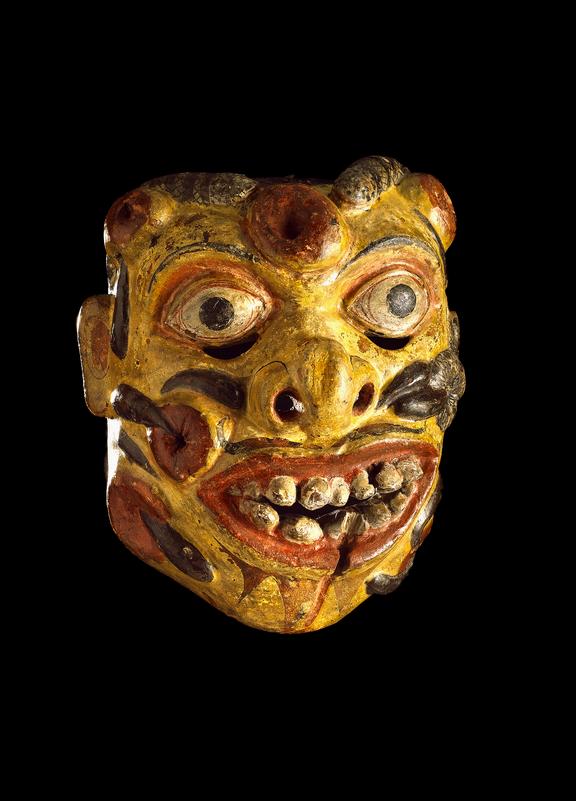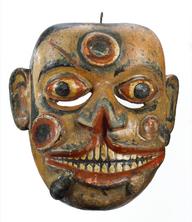


Carved and polychrome painted wooden face mask representing Hevaya, the soldier from the kolam play, his yellow face covered with cuts and sores, with leeches applied to them, Sinhalese, 1771-1900
Covered in bites and leeches, this carved wooden mask represents Hevaya, the soldier from the masked kolam plays of Sri Lanka. There are over fifty characters in the plays and Hevaya represents a figure of fun. ‘Kolam’ literally means appearance or impersonation and it is thought that the plays began as an ancient fertility ritual. The plays may also be a prelude to the exorcism of demons, which are believed, in parts of Sri Lanka, to be the cause of disease.
Details
- Category:
- Asian Medicine
- Collection:
- Sir Henry Wellcome's Museum Collection
- Object Number:
- A117366
- Materials:
- wood, kaduru or ruk-attana and hook, brass
- type:
- mask
- credit:
- Wellcome Trust (Purchased from Stevens)




